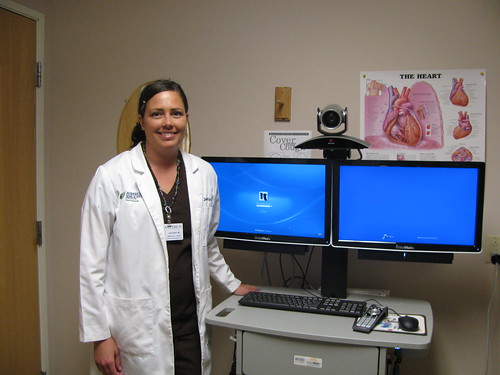
June is Dairy Month and Wisconsin is a national leader in agricultural production with dairy farming being the number one agricultural activity in the State. Wisconsin has more than 76,000 farms dotting its rural landscape, supporting communities, families and businesses of all size. Critical to the future of rural Wisconsin is modern infrastructure, state of the art technologies, and advanced education opportunities.
Critical to the future of rural Wisconsin is modern infrastructure, state of the art technologies, and advanced education opportunities.
However, residents in many rural areas face barriers in accessing essential services such as medical care and distance learning opportunities due to the upfront cost of the technology and hardware necessary these services demand.
Thanks to USDA Rural Development and the Distance Learning and Telemedicine (DLT) program, these prohibitions are going away. USDA is partnering with Wisconsin rural communities to ensure high tech access once exclusive to urban areas are available to rural communities across Wisconsin, including hospitals, schools, and libraries.
Since 2009, funding has been awarded to 10 projects in Wisconsin that helped 150 rural schools and 60 medical institutions leverage state-of-the-art technology.
For example, the Aspirus Health Foundation, Inc. received two DLT grants from USDA in recent years. These grants allowed Aspirus to grow their Telehealth infrastructure into communities in north-central Wisconsin and the western Upper Peninsula of Michigan. The system allows patients in the most rural service areas to receive specialized care from the convenience and comfort of their local clinic or hospital. Aspirus, Inc. purchased two specialty Telehealth carts and a number of physician desktop units connecting specialists and patients in the Upper Peninsula and in Wausau, Wis., respectively. Patient satisfaction with the program has been overwhelmingly positive. Additionally, many of the comments received addressed the convenience the system provides patients, lessening the distance to travel and time necessary for a routine appointment. Nearly 10 percent of the respondents indicated they would have gone without care if Telehealth was not available.
“These grants have provided Aspirus the opportunity to rapidly expand the Telehealth program and enable rural patients to receive high quality specialty care that is usually difficult to obtain. Without the assistance of USDA, the expansion would have been possible,” said Kalynn Pempek, Aspirus Health Foundation Executive Director.
Recently, Agriculture Secretary Tom Vilsack announced funding for 52 distance learning and telemedicine projects that will increase access to health care and enhance educational opportunities in 29 states.
Wisconsin received two grants that will improve the access to critical specialty medical care.
"In order for rural communities to thrive and grow they need affordable access to infrastructure and state of the art communications technology,” said USDA Rural Development State Director Stan Gruszynski. “The Distance Learning and Telemedicine program gives more than loan and grant dollars to rural communities……it gives them a future… security,… and a level playing field to compete in a world economy. We are very proud to have a role in these improvements to the quality of life in rural Wisconsin,” he added.
To find out more about how the Distance Learning and Telemedicine Program can benefit your community, click here.


